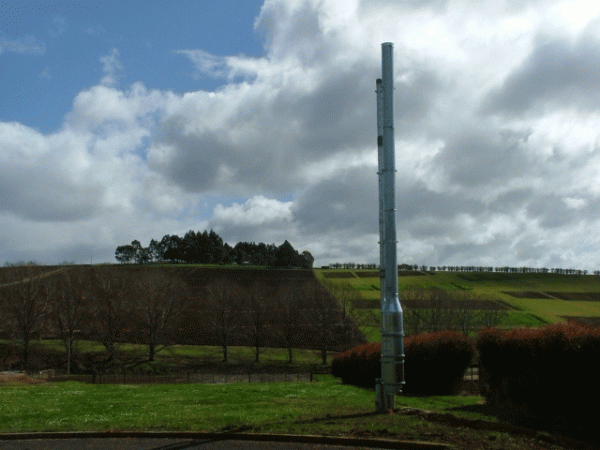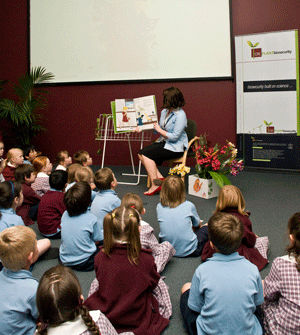Body Text:
<h1><em>Simon says...</em></h1><p><img src="/sites/all/files/images/Simon_photo_1_.jpg" alt="Dr Simon McKirdy" hspace="3" vspace="3" width="228" height="212" align="left" /></p><p>Welcome to the November edition of <em>The Leaflet.</em></p><p> </p><p>The past few months have been busy for the CRC across all research programs, as well as at the Canberra office. Planning and preparation for the CRC's Third Year Review is fully underway with only five weeks left to the actual review. I would like to take this opportunity to thank all CRC members and staff who have helped prepare documentation to assist with the review.</p><p> </p><p>I would also like to thank everyone who contributed to the <em>2007-08 Annual Report</em> which highlights the CRC's key achievements during the reporting period. The report was submitted to the Department of Innovation, Industry, Science and Research at the end of October. A pdf version of the report can be downloaded from the <a href="/publication/2007-08-annual-report" target="_blank">website</a> and hard copies will be sent to participants in the next few weeks.</p><p> </p><p>In late August, I attended the International Congress of Plant Pathology which was held in Torino, Italy. The CRC's research activities were represented well with posters being presented by four PhD students, three researchers, and a poster on our Education and Training Program. This conference provided a fundamental opportunity for CRC researchers to showcase their projects to an international audience, as well as fostering collaboration with other plant pathologists.</p><p> </p><p>Since the previous edition of <em>The Leaflet</em>, the CRC has had an Education and Training Program bonanza! In September the CRC hosted its annual workshop for PhD students at Rottnest Island. The workshops are held to provide students with skills to benefit them in their careers when their studies finish, as well as an opportunity to network with other students and staff from the CRC's Canberra office. The workshop focused on intellectual property management and project management. </p><p> </p><p>Last Thursday, Australia's former Chief Scientist, Dr Jim Peacock AC launched the CRC's big book for children <em>Plant Pest Investigation</em>. Everyone who attended the launch had a fantastic time and there has been considerable interest in the book from schools and the plant biosecurity industry.</p><p> </p><p>The finale of the CRC's <em>Scientists of Tomorrow</em> primary school program was held on Thursday evening where several schools from across the ACT competed for prizes by presenting their ‘plant biosecurity research projects'. The event was hugely successful with enthusiastic ‘young scientists' showcasing their innovative projects, which included fully functional websites, sporetraps and emergency response vehicles. With the high-level of quality shown by these students, it's quite possible they could be Australia's future plant biosecurity scientists. </p><p> </p><p>Both of these events fall under the CRC's school education strategy which aims to encourage science to the younger generation as well as create awareness of plant biosecurity. The success of the <em>Scientists of Tomorrow</em> program and <em>Plant Pest Investigation</em> are reflective of the hard work and dedication shown by CRC staff. In particular I would like to thank Carla and Lauren for their educational experience to develop (and deliver) the schools program, Mel for coming in new and delivering the program in Term 3, Kate and Lauren for authoring <em>Plant Pest Investigation</em> and making the complex message of plant biosecurity understandable to a young audience, and Kate for managing the production of the book. </p><p> </p><p>Until the next edition...</p><p><img src="/sites/all/files/images/S_McKirdy.jpg" alt="Dr McKirdy signature" width="110" height="62" /></p><p>Dr Simon McKirdy<br /><strong>Chief Executive Officer<br /></strong>CRC for National Plant Biosecurity</p>

![]()





